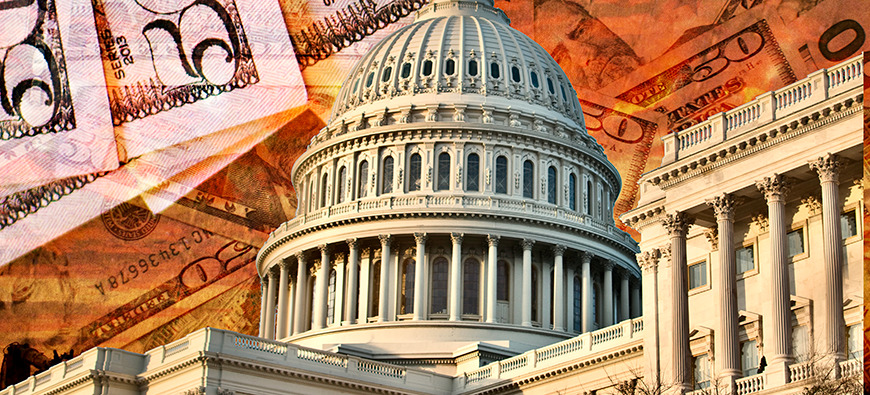
Year One of Biden’s Impact on Banks
Brought to you by Vedder Price

Last year, we summarized our thoughts on the impact that Joe Biden’s presidency might have on the banking industry. Nearly a year into the administration, below is an updated overview of the emerging trends and expectations for the new year.
Strategic Initiatives
Greater scrutiny on mergers and acquisitions: On July 9, 2021, President Biden announced in an executive order that his administration will more closely scrutinize bank mergers. The order encourages the U.S. Attorney General, in consultation with federal banking agencies, to review oversight practices and adopt a plan by Jan. 5, 2022, for the revitalization of merger oversight under the Bank Merger Act and Bank Holding Company Act. Recently, the Consumer Financial Protection Bureau issued a statement announcing an upcoming review of the Federal Deposit Insurance Corp.’s bank merger policies. The FDIC in turn issued its own press release denying that such a review was approved or scheduled to take place. Despite this apparent regulatory rift, banks should expect heightened scrutiny and longer review timeframes for transactions.
Enhanced focus on bank/fintech partnerships: Banks can expect both a heightened level of scrutiny and increased rulemaking activity surrounding the growing trend of fintech/bank partnerships. In 2021, the federal banking agencies issued a variety of guidance and interpretive letters concerning existing and prospective bank/fintech partnerships. Banks should expect needing to engage in detailed advanced planning and diligence review (all of which should be documented) before entering into fintech partnerships and/or crypto-asset-related initiatives.
Regulatory Considerations
Continuing changes in leadership and priorities at the federal regulatory level: Although President Biden’s initial nominee for Comptroller of the Currency has withdrawn from consideration, banks should anticipate that the president will seek to identify other potential nominees who will be focused on greater regulatory oversight of the industry, for both the comptroller position and the open vice chair for supervision position at the Federal Reserve. Although it takes some time for new leadership changes to have an impact, we expect the changes made to date, and the further changes to come, will lead to greater regulatory oversight in the areas noted below.
Enhanced fair lending scrutiny and revisions to Consumer Reinvestment Act (CRA) obligations: Federal banking agencies appear to be more engaged in reviewing potential redlining and other fair lending matters. We expect this trend to continue, and we also expect federal- and state-level action relating to CRA obligations. Following the OCC’s rescission of its 2020 CRA rule, the federal banking agencies again look poised to attempt to modernize the CRA. Regardless, states do not appear to be waiting. In early 2021, joining Massachusetts, Connecticut, New York, Washington and the District of Columbia, Illinois became the fifth state to adopt a state-level CRA. While modeled on the federal CRA, these laws include state-specific requirements.
New BSA/AML requirements: Banks should expect revamped Bank Secrecy Act/anti-money laundering requirements to take effect in 2022. Recently, the Financial Crimes Enforcement Network (FinCEN) proposed the first of three new rules to implement the Corporate Transparency Act. Among other provisions, the proposed rule will require reporting companies to disclose to FinCEN the identity and other information of every individual who is a beneficial owner of a reporting company. FinCEN also intends to revise or rescind its 2016 customer due diligence rule.
New commercial data collection requirements: Banks should expect the implementation of a small business data collection rule, akin to the Home Mortgage Disclosure Act reporting obligations, in either 2022 or 2023. On Sept. 1, 2021, the CFPB issued a proposed rule which, if finalized, would require banks to report to the CFPB the amount and type of small business credit applied for and extended, demographic information about small business credit applicants and key elements of the price of the credit offered.
Corporate Governance
Environmental, social and governance (ESG) disclosures: We expect federal banking agencies, the SEC, proxy advisory firms and many large corporations will continue to focus on ESG matters, which will lead publicly traded bank holding companies to develop more formal disclosures on ESG matters during the upcoming year.




